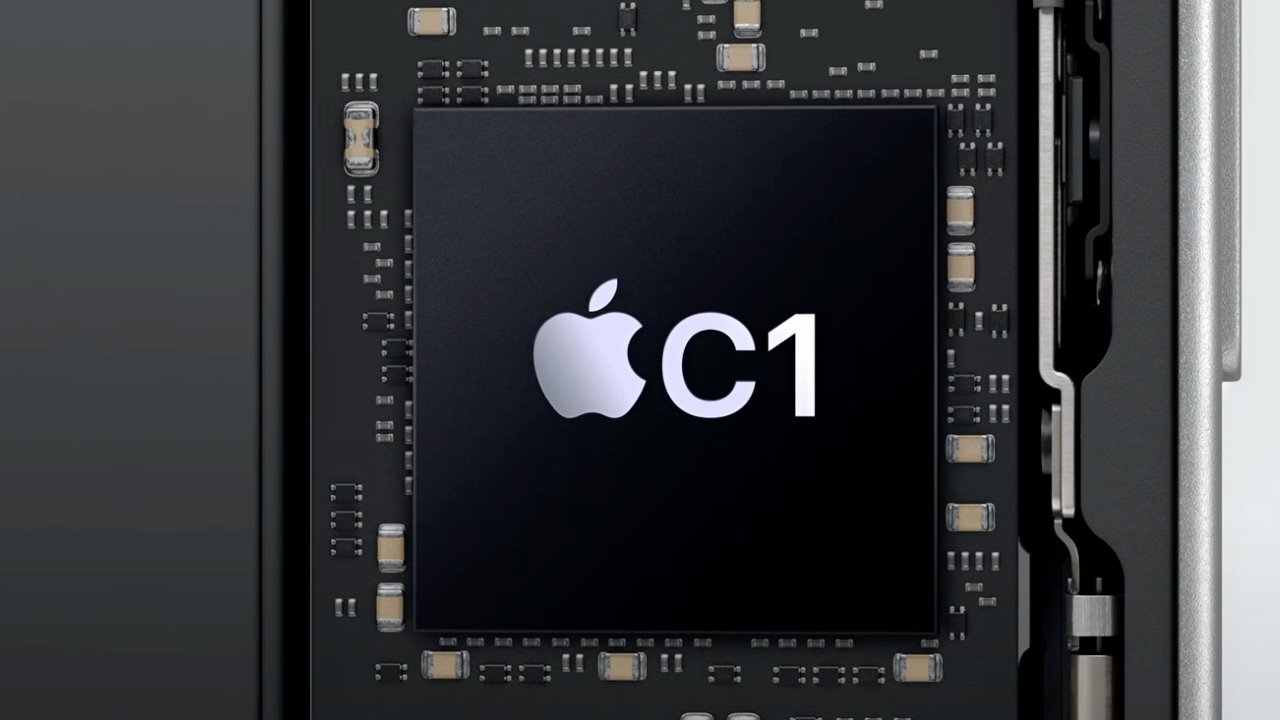The first real-world tests of Apple's C1 modem in the iPhone 16e say that has comparable performance to previous 5G chips, but achieves that with significantly less battery power.
Apple's $1 billion acquisition of Intel's modem business, plus over five years of development, have paid off. Following stories of Apple finding it hard to develop its own 5G modem for the iPhone — or even giving up entirely — the company's C1 is straight out of the Apple Silicon playbook.
Chinese YouTube channel Geekerwan has been testing the C1 in the new iPhone 16e using laboratory conditions and then real-world usage to check out Apple's claims. Significantly, the C1 does not support mmWave 5G as the other models do, but mmWave penetration is low in the US, and lower still everywhere else.
But in the lab and out on subway trains, the iPhone 16e's C1 modem broadly matched the Qualcomm ones in all the other iPhone 16 models for regular 5G speeds.
It just beat them for power efficiency.
The Geekerwan tests have found that Apple's claims for lower battery use are broadly correct. Apple states that the C1 is 25% more power efficient than previous modems, while the tests usually showed around that figure in ideal conditions.
Specifically, with a high signal strength, the average power consumption was:
- 0.88 watts for the iPhone 16
- 0.67 watts for the iPhone 16e
That's a difference of around 24%. For the low signal test, the C1 drew about 17% less power:
- 0.81 watts for the iPhone 16
- 0.67 watts for the iPhone 16e
This equated to 7 hour 53 minutes for 5G streaming video on the iPhone 16e, some 53 minutes better than the iPhone 16. The iPhone 16 Pro ran for about an hour less than the iPhone 16e.
It's not possible to determine from these tests how much of those longer streaming times are down to efficiency or the iPhone 16e's larger battery. Apple does not quote battery sizes, but first breakdowns say it has a 3,961 mAh battery, larger than the 3,561 mAh one in the iPhone 16.
But it does clearly show, yet again, how designing its own Apple Silicon does much more than save Apple the licensing fees it pays Qualcomm. And it makes it less than a shock that Apple is reportedly already developing its C2 modem for future devices.
 William Gallagher
William Gallagher







-m.jpg)






 Brian Patterson
Brian Patterson
 Charles Martin
Charles Martin


 Malcolm Owen
Malcolm Owen

 Christine McKee
Christine McKee
 Marko Zivkovic
Marko Zivkovic









17 Comments
Once Apple has their C* (* = some number) modem plus their own Bluetooth chip integrated their iPhones, I doubt the other vendors will be able to match the usable daily time on the new equipment. Great. But my iPhone 16 Pro Max could go nearly two days now with my use.
Amazing improvements coming also in survellience........
So if Apple plans on using Apple modems thru-out their devices, they wanted it to be power efficient (low wattage) under their complete control along with being able to perform well out in the wild, in comparison to the Apple Silicon competition be it Intel, Qualcomm, Google, Samsung, Microsoft, Meta, AMD or Nvidia the C1 is just a start, Apple will iterate and incorporate future versions into their iPhones, iPads, laptops, desktop computers, Apple Vision, future Apple glasses and many new Apple devices coming up in the future sounds like a win. Apple seems to play the long game, 25 years and counting…..
The ultimate payoff for Apple is long term.
This finding was completely expected. It was mentioned elsewhere before.
When Apple creates custom silicon, one main reason is for power efficiency because the vast majority of their hardware products are portable (iPhones, iPads, AirPods, Apple Watch, MacBooks). And power efficiency is a competitive advantage because Apple doesn't sell their chips to other companies.
We have heard Apple repeatedly pound the "performance per watt" mantra, not the least in Johny Srouji's appearance in the original Apple Silicon keynote years ago.
If the performance is in the ballpark of the competition with a power savings that's an outright win. Apple doesn't try to get the top score in some synthetic benchmark, that's not what they are trying to achieve.
Apple will broaden the reach of the C-series cellular modem silicon and put it in many other devices. Something like a minor speed improvement only benefits a handful of power users in a limited number of usage cases under very specific conditions. Something like power savings benefits everyone owning that device.
Great, but how was this measured?